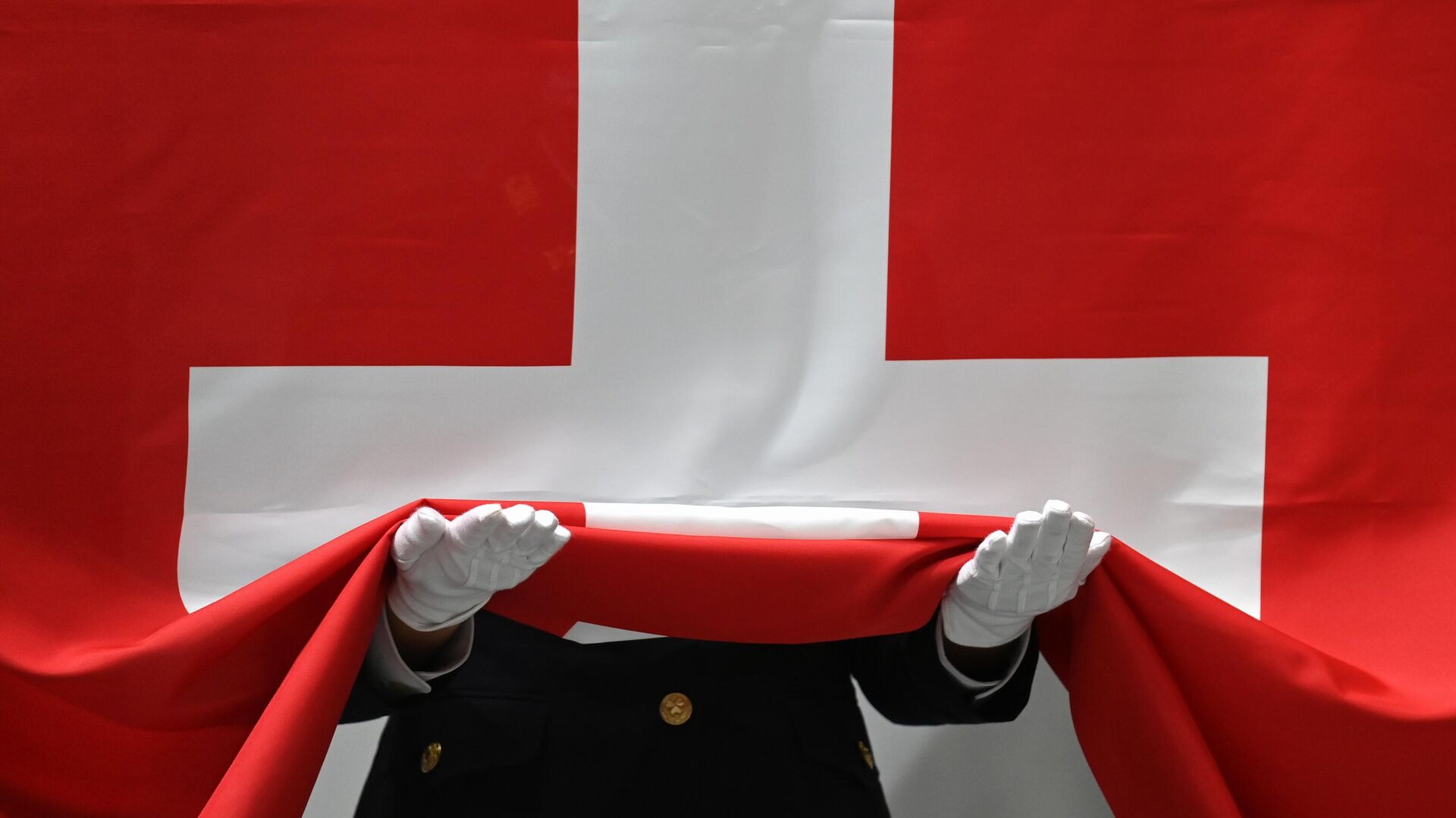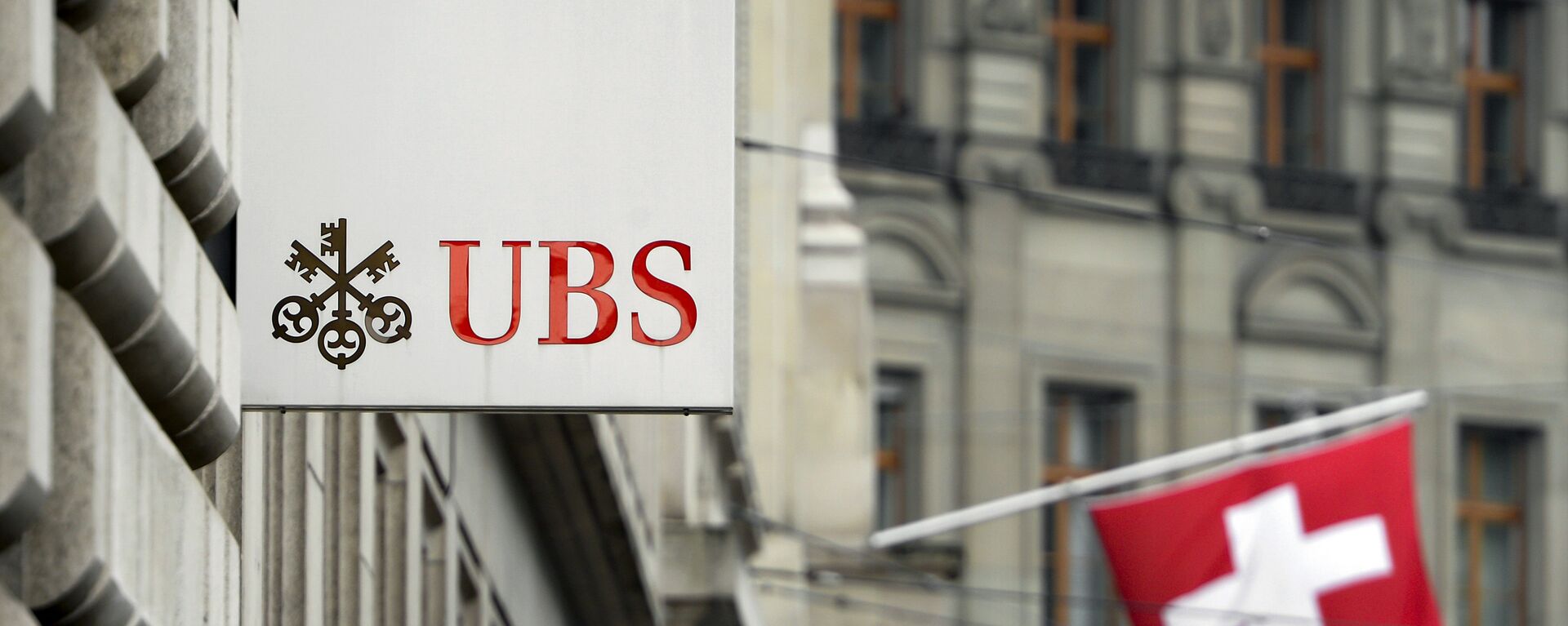https://sputnikglobe.com/20220609/swiss-national-council-approves-revision-of-law-to-allow-imposing-sanctions-independently-1096164366.html
Swiss National Council Approves Revision of Law to Allow Imposing Sanctions Independently
Swiss National Council Approves Revision of Law to Allow Imposing Sanctions Independently
Sputnik International
MOSCOW, (Sputnik) - Switzerland's National Council, the lower house of the parliament, approved on Thursday the revision of a law, which will remove... 09.06.2022, Sputnik International
2022-06-09T18:33+0000
2022-06-09T18:33+0000
2023-01-09T18:13+0000
europe
sanctions
switzerland
https://cdn1.img.sputnikglobe.com/img/07e6/06/09/1096164122_0:292:3071:2019_1920x0_80_0_0_6c208afc26677c5ac2ba7edd820c6b1d.jpg
Under the Federal Act on the Implementation of International Sanctions, or simply the Embargo Act, Switzerland cannot impose sanctions independently and is only capable of joining the sanctions regimes adopted by the United Nations, the Organization for Security and Co-operation in Europe or Bern's main economic partners.The lawmakers believe that Switzerland's lack of a legal basis for imposing its own sanctions against Russia spelled many troubles for the country, as Switzerland was not proactive in sanctioning Moscow after the start of the military operation in Ukraine. Instead, the country had to follow suit, incurring harsh criticism in the Western community, the National Council noted.The majority of parties in the parliament supported the bill, with lawmaker Tiana Angelina Moser from the Green Liberal Party of Switzerland claiming that Switzerland must shed its role of an observer as the world has changed.This opinion was not unanimous, for example, the national-conservative Swiss People's Party voted against the bill, claiming that sanctions could make Switzerland a co-belligerent in the conflict.The bill will now be referred to the upper house of the Swiss parliament, the Council of States, for consideration.Last Friday, the Swiss Federal Council granted the permission to export war materiel in the form of individual parts and assembly packages to European companies, which will then be reexported to Ukraine. The council authorized the export under the condition that Swiss-produced individual parts will account for less than 50% of the final product, deeming this "compatible with the law of neutrality."After Russia launched its military operation in Ukraine, Western countries have been supplying Kiev with weapons and military equipment. Switzerland, in line with the principle of neutrality, is providing Ukraine with direct aid specifically tailored for humanitarian purposes and has previously declined to send military aid to Ukraine.
https://sputnikglobe.com/20220513/swiss-banks-unfreeze-34-billion-in-sanctioned-russian-assets--1095496724.html
switzerland
Sputnik International
feedback@sputniknews.com
+74956456601
MIA „Rossiya Segodnya“
2022
Sputnik International
feedback@sputniknews.com
+74956456601
MIA „Rossiya Segodnya“
News
en_EN
Sputnik International
feedback@sputniknews.com
+74956456601
MIA „Rossiya Segodnya“
Sputnik International
feedback@sputniknews.com
+74956456601
MIA „Rossiya Segodnya“
europe, sanctions, switzerland
europe, sanctions, switzerland
Swiss National Council Approves Revision of Law to Allow Imposing Sanctions Independently
18:33 GMT 09.06.2022 (Updated: 18:13 GMT 09.01.2023) MOSCOW, (Sputnik) - Switzerland's National Council, the lower house of the parliament, approved on Thursday the revision of a law, which will remove bureaucratic barriers for introducing sanctions against Russia.
Under the Federal Act on the Implementation of International Sanctions, or simply the Embargo Act, Switzerland cannot impose sanctions independently and is only capable of joining the sanctions regimes adopted by the United Nations, the Organization for Security and Co-operation in Europe or Bern's main economic partners.
"According to the will of the National Council, the Federal Council [highest executive authority] should be allowed to impose independent Swiss sanctions in the future. On Thursday, the Council voted 136 to 53 without abstentions in favor of a corresponding amendment to the Embargo Act," the National Council said in a statement.
The lawmakers believe that Switzerland's lack of a legal basis for imposing its
own sanctions against Russia spelled many troubles for the country, as Switzerland was not proactive in sanctioning Moscow after the start of the military operation in Ukraine. Instead, the country had to follow suit, incurring harsh criticism in the Western community, the National Council noted.
The majority of parties in the parliament supported the bill, with lawmaker Tiana Angelina Moser from the Green Liberal Party of Switzerland claiming that Switzerland must shed its role of an observer as the world has changed.
This opinion was not unanimous, for example, the national-conservative Swiss People's Party voted against the bill, claiming that sanctions could make Switzerland a
co-belligerent in the conflict.
The bill will now be referred to the upper house of the Swiss parliament, the Council of States, for consideration.
Last Friday, the Swiss Federal Council granted the permission to export war materiel in the form of individual parts and assembly packages to European companies, which will then be reexported to Ukraine. The council authorized the export under the condition that Swiss-produced individual parts will account for less than 50% of the final product, deeming this "compatible with the law of neutrality."
After Russia launched its military operation in Ukraine, Western countries have been supplying Kiev with weapons and military equipment. Switzerland, in line with the principle of neutrality, is providing Ukraine with direct aid specifically tailored for humanitarian purposes and has previously declined to send military aid to Ukraine.


